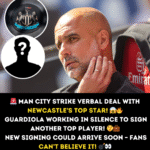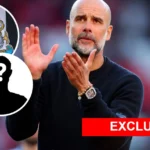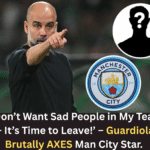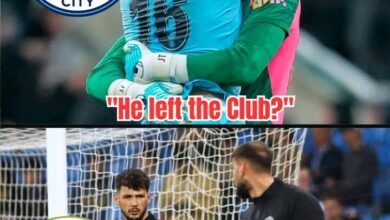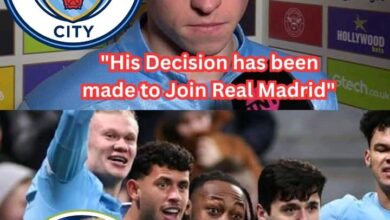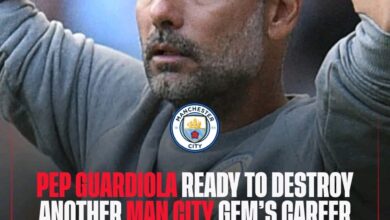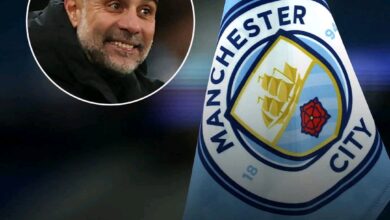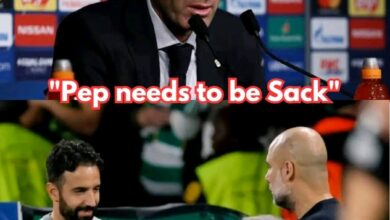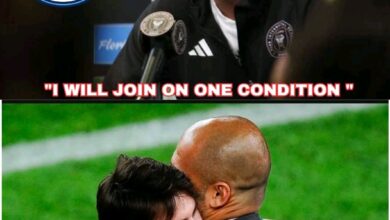Newcastle to reject £165m for Tino Livramento as Man City chase deal’
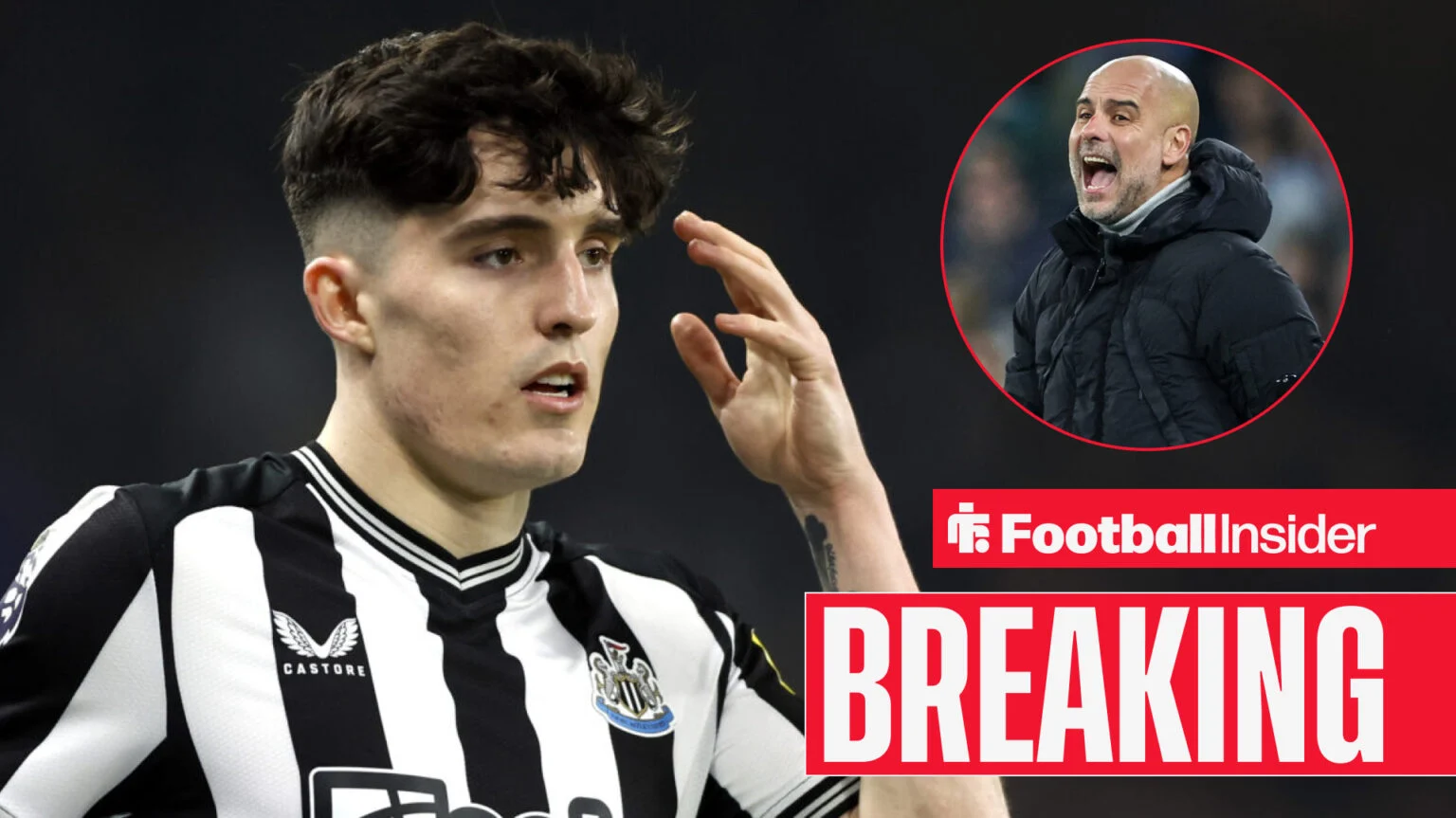
The narrative surrounding Livramento, a prodigious talent at just 22 years old, has escalated rapidly since his arrival at St. James’ Park in 2023 for a reported £32 million from Southampton. What was initially perceived as a shrewd investment in a promising young defender has quickly blossomed into a cornerstone of Howe’s tactical blueprint. His ascent has been meteoric, transforming him from a promising prospect into an indispensable asset, a player whose value to Newcastle transcends mere financial metrics. The club’s firm rejection of even astronomical bids signals a new era for the Magpies, one where they are buyers and builders, not sellers, of their most prized assets.
The Ascendance of Tino Livramento: A Pillar of Howe’s Vision
Tino Livramento’s journey to becoming one of the most coveted full-backs in European football has been a testament to his innate talent, relentless work ethic, and the astute guidance of Eddie Howe. Since his relatively modest £32 million transfer, a fee that now appears to be an extraordinary bargain given his current valuation, Livramento has seamlessly integrated into the demanding Premier League environment. His statistics speak volumes: 80 appearances across all competitions in just two seasons, a remarkable testament to his durability and consistent selection in a highly competitive squad. Beyond the numbers, it is his “near-perfect disciplinary record” that truly highlights his maturity and tactical discipline—a rare commodity for a young defender operating in such a high-intensity role. This blend of youthful exuberance and seasoned professionalism makes him a truly unique proposition.
What makes Livramento so integral to Newcastle’s system? Firstly, his athleticism is exceptional. He possesses blistering pace that allows him to recover defensively, track back against rapid wingers, and offer a constant attacking threat down the right flank. This speed is complemented by an impressive engine, enabling him to tirelessly patrol the entire touchline for 90 minutes. Defensively, he is robust, intelligent, and rarely caught out of position. His tackling is precise, his aerial duels are surprisingly effective for his stature, and his ability to read the game allows him to intercept passes and break up opposition attacks with regularity.
On the offensive side, Livramento is equally impactful. He provides width, overlapping runs, and delivers dangerous crosses into the box. His link-up play with wingers and central midfielders is fluid, often creating intricate passing triangles that unlock stubborn defences. Furthermore, his versatility is a hidden gem; capable of playing on either flank, and even occasionally stepping into a more advanced midfield role, he offers Howe invaluable tactical flexibility. This multifaceted skill set, combined with his age and immense potential for further development, positions him as a generational talent, precisely the kind of player around whom a successful long-term project can be built. He is not merely a full-back; he is a modern-day wing-back, a defensive anchor, and an attacking catalyst all rolled into one.
Eddie Howe’s Project: Building a Dynasty on Tyneside
The unwavering stance on Livramento is a direct reflection of the ambitious “project” that Eddie Howe is meticulously constructing at St. James’ Park. This isn’t just about winning a few games; it’s about establishing Newcastle United as a perennial force in English and European football. The foundations of this project were laid with the securing of Champions League football last season, a monumental achievement that defied expectations and showcased the transformative power of Howe’s leadership. This was further cemented by the triumph in the EFL Cup, a tangible piece of silverware that instilled a winning mentality and provided a taste of success for a club starved of trophies for decades.
Howe’s philosophy is rooted in high-intensity football, tactical discipline, and the relentless development of his players. He demands commitment, intelligence, and a collective spirit that has become the hallmark of his Newcastle side. The success of the full-backs, with Lewis Hall mirroring Livramento’s impact on the left flank, underscores the strategic importance of these positions in Howe’s system. They are not merely defenders but crucial components of both the defensive solidity and the attacking thrust. The synergy between Livramento and Hall provides balance, width, and an unpredictable element to Newcastle’s play, making them incredibly difficult to contain.
The club’s ownership, backed by significant financial resources, has entrusted Howe with the mandate to build a sustainable, competitive team. This involves not just signing new talent but crucially, retaining the existing core that has bought into his vision. Selling a player of Livramento’s calibre, especially at this nascent stage of the project, would send a contradictory message and potentially destabilize the carefully cultivated team dynamics. Howe is keen to achieve more, and that ambition necessitates keeping his best players, integrating them further, and allowing them to mature together into a cohesive, dominant unit. The project is still in its early phases, and Livramento is seen as an indispensable brick in its grand design.
Manchester City’s Persistent Pursuit: A Tactical Imperative
Manchester City’s sustained interest in Tino Livramento is hardly surprising, given their relentless pursuit of excellence and their meticulous approach to squad building under Pep Guardiola. The departure of Kyle Walker, or perhaps his natural decline with age, has created a void at right-back that Guardiola is keen to fill with a long-term solution. Walker’s unique blend of pace, power, and defensive acumen has been crucial to City’s success, and finding a suitable replacement is a top priority. Livramento, with his similar attributes and significantly younger age, fits the profile perfectly.
Guardiola’s tactical system places immense demands on his full-backs, requiring them to contribute significantly in both defensive transitions and attacking phases. They often invert into midfield, provide width, or even act as auxiliary attackers. Livramento’s intelligence, adaptability, and technical proficiency make him an ideal candidate to thrive under Guardiola’s tutelage. The reported £65 million offer from City, while substantial by most standards, reflects their genuine desire to acquire the player. For almost any other club, such an offer would be irresistible. However, for Newcastle, with their newfound wealth and grand ambitions, it falls significantly short of their perceived value for their prized asset.
City’s transfer policy, while often characterized by lavish spending, is also underpinned by strategic foresight. They invest in players who can immediately impact the first team but also possess the potential for long-term growth. Livramento embodies this philosophy. His acquisition would not only address an immediate need but also secure a key position for the next decade. Yet, even for a club of City’s financial might, there are limits, especially with the ever-present shadow of Financial Fair Play regulations. The challenge for City is to balance their desire for Livramento with the reality of Newcastle’s unyielding stance and their own financial prudence.
The £165 Million Barricade: Why Livramento is “Irreplaceable”
The astonishing figure of £165 million, reportedly deemed insufficient by Newcastle to even consider selling Tino Livramento, speaks volumes about the player’s perceived worth to the club. This valuation goes beyond mere market economics; it delves into the strategic, emotional, and symbolic value Livramento holds within St. James’ Park. He is not just a player; he is a symbol of Newcastle’s resurgence and their commitment to building a sustainable, world-class squad.
Firstly, the concept of “irreplaceable” stems from his perfect fit within Eddie Howe’s system. Finding another full-back with his unique blend of defensive solidity, attacking prowess, athleticism, and tactical intelligence, who also possesses his age and potential, would be an almost impossible task. Any replacement would likely come at a significant cost, both in terms of transfer fee and the time required to adapt to Howe’s demanding style. The disruption to team cohesion and the potential for a dip in performance would far outweigh any financial gain from his sale.
Secondly, Livramento represents the future of Newcastle United. He is a young, English talent who has already demonstrated his immense capabilities in the Premier League. Retaining such players sends a powerful message to other aspiring talents: Newcastle is a club where you can develop, win trophies, and compete at the highest level. Selling him, especially to a direct rival like Manchester City, would undermine this narrative and could be perceived as a lack of ambition. The club’s owners are investing heavily, and that investment is not just in new signings but in the long-term retention of their best players.
Financially, while £165 million is an astronomical sum, the reinvestment challenge is significant. Could Newcastle genuinely find a player of Livramento’s calibre and potential for less than that amount? And even if they could, the pressure to spend wisely and effectively would be immense. The risk of making a poor signing or failing to adequately replace him is a deterrent. Furthermore, FFP regulations, while allowing for significant spending, also scrutinize player sales and profits. Selling a key asset could impact future transfer windows, depending on how the funds are accounted for and reinvested.
Ultimately, the “irreplaceable” tag is a reflection of Livramento’s multifaceted value: his on-field performance, his potential for growth, his symbolic importance to the project, and the sheer difficulty of finding an adequate replacement. Newcastle’s valuation is not just about his current market price; it’s about the cost of losing a player who is fundamental to their aspirations.
Pep Guardiola’s Frustration: A Familiar Transfer Hurdle
Pep Guardiola, despite his unparalleled success at Manchester City, is no stranger to transfer market frustrations. Throughout his managerial career, he has encountered situations where his desired targets proved unattainable due to various factors, including club’s unwavering stances or prohibitive valuations. The pursuit of Tino Livramento appears to be another such instance, where even City’s considerable financial muscle and persuasive power are proving insufficient against Newcastle’s resolve.
Guardiola thrives on having a squad meticulously tailored to his tactical demands, and the right-back position is critical to his system. With Kyle Walker’s long-term future potentially uncertain, securing a dynamic, young replacement is a priority. However, Newcastle’s firm “not for sale” message, even in the face of a record-breaking offer, presents a formidable obstacle. Guardiola will understand that ambitious clubs, especially those with significant backing, are no longer willing to be bullied in the transfer market. The landscape has shifted, and clubs like Newcastle are now in a position to dictate terms, not merely react to them.
The frustration for Guardiola will stem not just from the inability to sign Livramento, but from the potential lack of suitable alternatives who possess the same unique blend of attributes and potential. The transfer market for elite full-backs is notoriously challenging, with few players combining defensive solidity, attacking flair, and the tactical intelligence required to excel in a Guardiola system. City will undoubtedly have a list of other targets, but the fact that Livramento remains their primary focus underscores his perceived superiority. This situation forces Guardiola and City’s recruitment team to either significantly increase their already astronomical offer, which carries its own financial and FFP risks, or pivot to less ideal alternatives, potentially compromising their long-term squad plans.
The Untouchables: Newcastle’s Core and Future Ambitions
The uncompromising stance on Tino Livramento is not an isolated incident but rather a clear indication of Newcastle United’s broader strategy to retain its most valuable assets and build a formidable, stable squad. The article highlights other key players who are considered “untouchable” by the Magpies, forming the core of Eddie Howe’s ambitious project.
Alexander Isak, the prolific Swedish international striker, is another player around whom the club is building. Despite facing a “difficult contract situation,” the reported £150 million valuation for him underscores his importance. Like Livramento, Isak is a young talent with immense potential, whose goal-scoring prowess and all-round attacking play are vital to Newcastle’s offensive strategy. Losing him would be a significant blow to their aspirations of challenging for major honours.
Beyond Livramento and Isak, the article explicitly names Sandro Tonali, Bruno Guimaraes, Anthony Gordon, and Joelinton as players who “should all be viewed as untouchable.” This quintet, along with Livramento and Isak, represents the spine of Newcastle’s team:
- Bruno Guimaraes: The midfield maestro, whose vision, passing range, and defensive tenacity make him the heartbeat of the team. He dictates the tempo, breaks up play, and initiates attacks.
- Sandro Tonali: Despite his off-field issues, his quality and potential as a deep-lying playmaker are undeniable. He is a long-term investment for the midfield.
- Anthony Gordon: The dynamic winger, whose pace, directness, and improved goal-scoring ability provide a constant threat on the flanks.
- Joelinton: The powerful and versatile midfielder, whose transformation from a striker to a box-to-box powerhouse has been remarkable. His physicality and work rate are crucial.
These players are not just individual talents; they form a cohesive unit that embodies Howe’s philosophy. Their collective strength, combined with their individual brilliance, is what makes Newcastle a force to be reckoned with. The club’s impression that these players are untouchable is a powerful message to potential suitors: Newcastle is no longer a selling club. They are a destination for ambitious players, and they are committed to retaining their stars to achieve their long-term goals of consistent Champions League football and challenging for the Premier League title. This strategy is about stability, growth, and building a legacy.
The Financial Fair Play Conundrum: A Balancing Act
While the focus remains on Newcastle’s resolute stance, the underlying implications of Financial Fair Play (FFP) regulations subtly influence both clubs’ strategies. For Manchester City, their history of significant spending means they are constantly under scrutiny. While they possess immense financial power, every major transfer, especially one of the magnitude required for Livramento, must be carefully considered within the confines of FFP rules. Overspending could lead to penalties, limiting their ability to operate in future windows. This might explain why their initial offer, while large, was not at the absolute ceiling of what they could theoretically spend.
For Newcastle, FFP also plays a role, albeit in a different way. Their recent influx of wealth has allowed for substantial investment, but they must demonstrate sustainable growth. Selling a player like Livramento for a massive profit could theoretically provide FFP headroom, but as discussed, the sporting cost of losing him outweighs this benefit. Instead, retaining key assets, increasing commercial revenue, and achieving sporting success (like Champions League qualification) are more sustainable ways to navigate FFP. By refusing to sell Livramento, Newcastle signals that their long-term vision is not solely about balancing the books through player sales, but through strategic growth and on-field success. The club is investing in its future, and Livramento is a key part of that investment.
Conclusion: A New Era for Newcastle United
The saga surrounding Tino Livramento and Manchester City’s pursuit serves as a compelling microcosm of the shifting power dynamics in modern football. Newcastle United’s unwavering rejection of a colossal £165 million bid for their 22-year-old full-back is more than just a transfer decision; it is a profound declaration of their ambition and a clear signal that St. James’ Park is no longer a hunting ground for established giants.
Tino Livramento, with his remarkable ascent since his £32 million arrival, has become an indispensable asset to Eddie Howe’s burgeoning project. His 80 appearances, near-perfect disciplinary record, and multifaceted skill set—combining blistering pace, defensive solidity, and attacking prowess—make him a truly “irreplaceable” figure within a system that thrives on dynamic full-backs. He embodies the future of Newcastle, a young, English talent around whom a dynasty can be built.
Eddie Howe’s meticulously crafted project, already boasting Champions League football and an EFL Cup triumph, is predicated on stability and the long-term development of a cohesive squad. Selling a player of Livramento’s calibre, particularly at this crucial juncture, would undermine the carefully cultivated team spirit and contradict the club’s overarching vision. The Magpies’ firm stance extends to other vital players like Alexander Isak, Sandro Tonali, Bruno Guimaraes, Anthony Gordon, and Joelinton, all of whom are considered untouchable, forming the robust core of this ambitious team.
For Pep Guardiola and Manchester City, this represents a rare but significant frustration in the transfer market. Despite their financial might and strategic acumen, they face an opponent equally determined and financially secure. The challenge of replacing a player of Kyle Walker’s stature is immense, and Livramento was clearly identified as the ideal long-term solution. However, Newcastle’s resolve means City must either break the bank with an unprecedented, potentially risky offer, or pivot to alternative targets, none of whom may perfectly fit the exacting standards of the Catalan manager.
In essence, Newcastle United is sending a clear message: they are no longer a selling club. They are building a formidable force, intent on competing at the highest level for years to come. Tino Livramento is not merely a player; he is a symbol of this new era, a testament to Newcastle’s unwavering commitment to their grand aspirations. The £165 million barricade around St. James’ Park stands firm, a testament to a club determined to write its own glorious chapter in football history.

